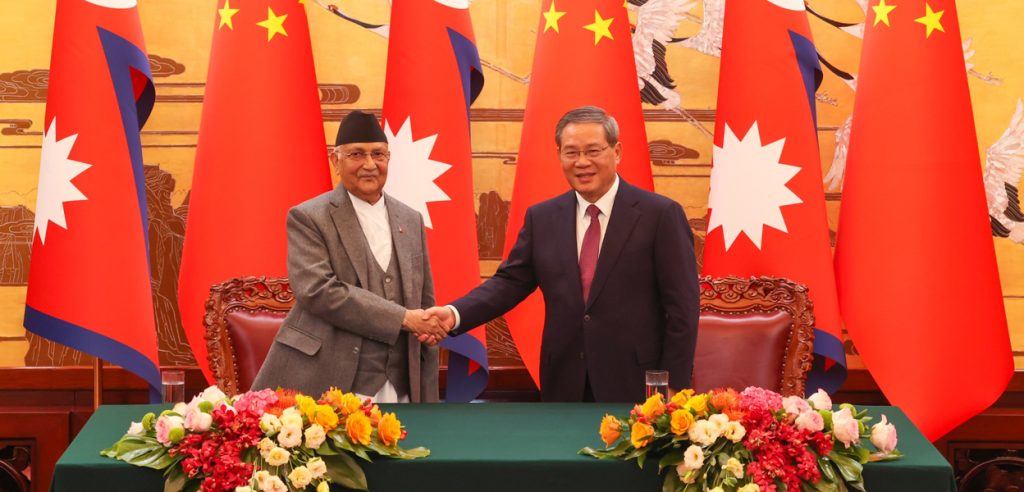KATHMANDU: Nepal and China have solidified their bilateral ties by signing nine significant agreements during talks held at the Great Hall of the People in Beijing. The discussions, led by Prime Minister KP Sharma Oli and his Chinese counterpart, Li Keqiang, culminated in cooperation across various sectors, from infrastructure development to trade expansion.
Key Agreements Signed
The agreements reflect Nepal’s focus on infrastructure development and economic growth. According to Krishna Prasad Dhakal, spokesperson for Nepal’s Ministry of Foreign Affairs, the following were among the highlights:
1. Tokha-Chhahare Tunnel Project: Exchange of letters formalizing cooperation on this pivotal infrastructure initiative.
2. Trade Enhancement: A commitment to strengthen Nepal-China trade relations and promote economic growth.
3. Cultural Preservation: Official acknowledgment of the completed reconstruction of Kathmandu’s iconic Nine-Storey Palace at Basantapur.
4. Economic Cooperation: Agreements on development projects, technical and financial assistance.
5. Export Protocol: A protocol for exporting thermally processed buffalo meat to China.
6. Volunteer Services: An agreement to deploy Chinese volunteer language teachers in Nepal.
7. Media Collaboration: Cooperation between Nepal Television and China Media Group to enhance communication technology.
Focus on Comprehensive Collaboration
The discussions between the two nations emphasized connectivity, industrial development, medical cooperation, tourism, agriculture, science, technology, and sports. Dhakal described the talks as “highly productive,” paving the way for broader cooperation in dispute management and investment opportunities.
BRI Discussions Omitted
Notably, the Belt and Road Initiative (BRI), a topic of significant interest in Nepal, was absent from the discussions. According to sources present during the meeting, “the term BRI was not even mentioned during the dialogue or in the agreements.”
The absence of BRI discussions follows internal deliberations within Nepal. China had previously proposed a draft plan for BRI implementation, but opposition from the Nepali Congress against taking loans under the initiative led to the development of a “Framework Cooperation on BRI.” This framework was approved by Nepal’s Cabinet just a day before Prime Minister Oli’s departure for China.
Hope for Progress with President Xi Jinping
Despite the omission of BRI in talks with Premier Li Keqiang, Nepali officials remain optimistic about progress on the initiative during Prime Minister Oli’s scheduled meeting with Chinese President Xi Jinping.
“As the executive leader in China, it is likely that discussions about the BRI will take place with President Xi,” a source familiar with the matter noted. “It would be premature to conclude that there has been no progress on the BRI until the joint statement is released.”
The agreements signed between Nepal and China signal a renewed commitment to bilateral cooperation. While the absence of BRI discussions has raised questions, the upcoming meeting with President Xi is expected to shed light on the matter. The outcomes of these talks are anticipated to play a pivotal role in shaping Nepal’s developmental trajectory, particularly in areas like trade, infrastructure, and connectivity.

